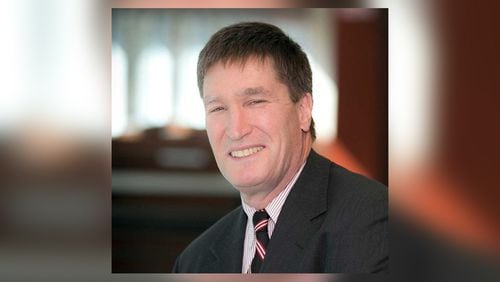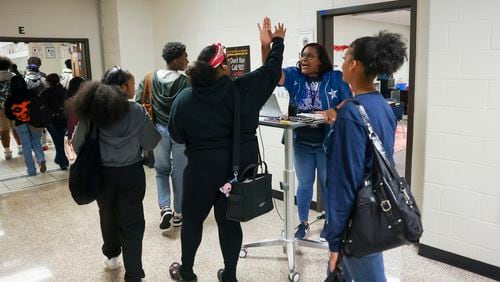Emory University is investigating a white law school professor’s use of a derogatory word used to disparage African-Americans in a classroom discussion about a racial discrimination case.
More than 200 students, the university’s president and faculty including the professor at the center of the controversy, gathered Wednesday afternoon in front of the law school for a “unity rally” to begin discussions about how Emory can be more inclusive and tolerant.
Another faculty member is teaching professor Paul Zwier’s class as the university reviews what happened in his class on Aug. 23.
Zwier was discussing a 1967 case about an African-American man who was told “a Negro could not be served” at an event. Zwier asked a student while discussing more facts about the case if the man was called the n-word, according to the university. The professor said he initially did not recall using the n-word but said in a letter to faculty that he used the word “rushing at the end of class and should have picked my words more carefully.”
Zwier has since apologized to his class and sent a letter to faculty explaining himself.
"I feel compelled to make this clear to combat any narrative that would make assumptions that I am a racist or white supremacist or inhospitable towards racial minorities," wrote Zwier, who has been at Emory since 2003, and specializes in mediation. "I hope you know me well enough to understand, that though a work in progress, my heart is in the right place."
Zwier declined Wednesday to discuss details of his classroom remarks. He told The Atlanta Journal-Constitution: “I would only add that in today’s environment, where politicians use coded racist language, I would like to emphasize that I condemn their appeals to racist sentiments in the strongest possible terms. That language is meant to divide us and we need to speak out against it.”
Emory wrote in a statement that the n-word was not part of the case law cited and called its use “unacceptable.” The university has ordered mandatory training for faculty and staff.
“We can – and will – do better,” the statement said.
Most speakers at the rally steered away from directly discussing what happened in the class last week. One African-American participant, Justin Tolston, though, held signs that included “I Am Not A N——-.” Toldson said one way Emory can be more inclusive is to add more diversity to its faculty. About 13 percent of its entire law school faculty are minority and 37 percent of its entire faculty are women, according to university data.
Third-year law school student Wrenica Archibald, 24, who organized the rally, said she is focused on continuing dialogue that unites students and faculty.
“Love overcomes all barriers,” Archibald, president of Emory’s Black Law Student Association, told the crowd.







